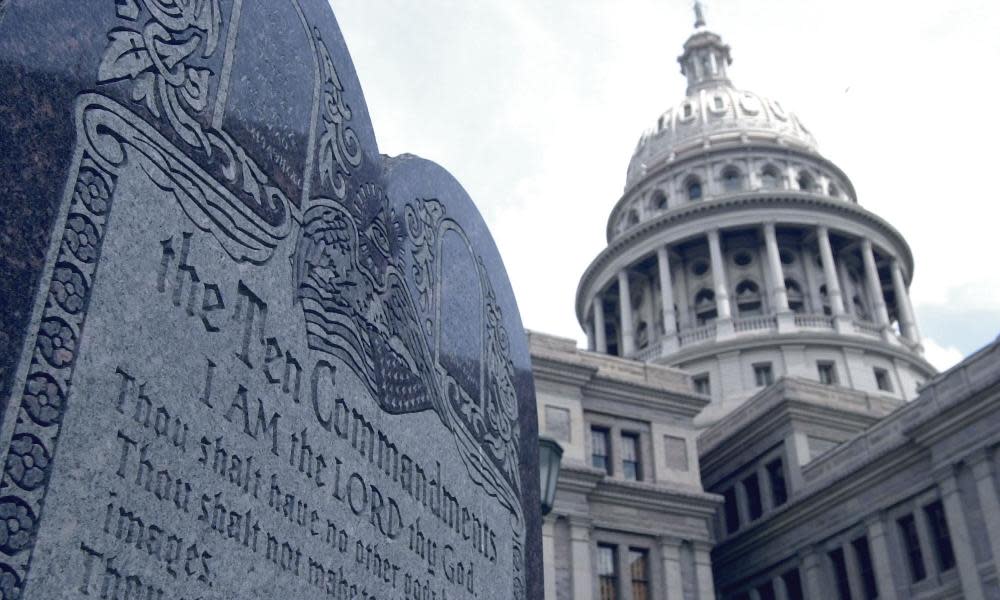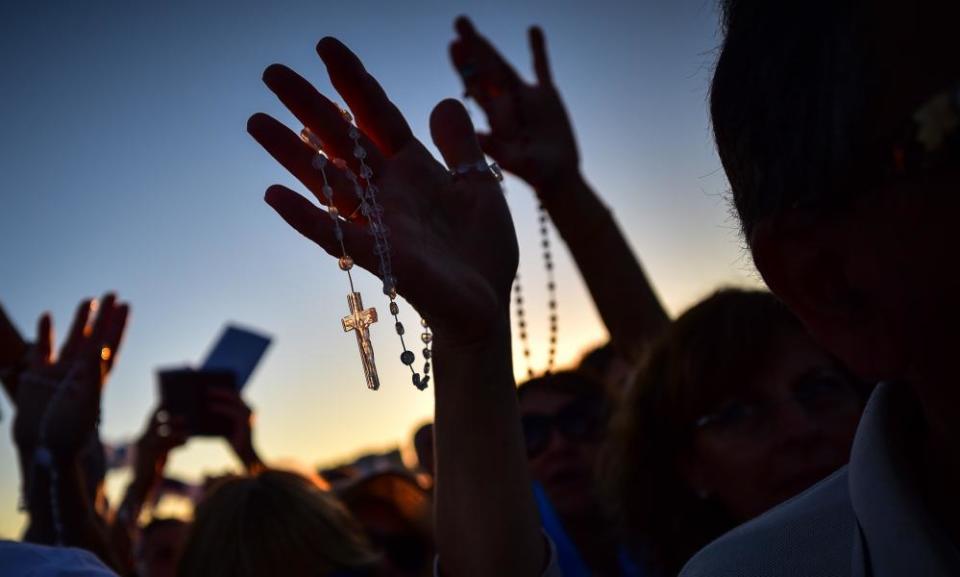The anti-democratic thinker inspiring America's Conservative elites

Since the election of Trump, writers of all stripes have been lining up to pen liberalism’s epitaph.
On the left, the pernicious effects of neo-liberal economics has been denounced, while on the right, liberalism’s cosmopolitanism, which has no apparent regard for nation, religion or family, has been decried.
The left’s answer has been to demand more social democracy to combat galloping inequality, while the right has called for the return to traditional values, anchored in the “community”.
American conservatives, especially among the country’s powerful Catholic minority (which includes six of the nine supreme court justices), have found a new champion for their cause in the Notre Dame political theorist Patrick Deneen. His latest book, Why Liberalism Failed, has been critically acclaimed throughout the conservative press, with the prominent Harvard legal scholar Adrian Vermeule, himself a recent convert to Catholicism, declaring it a “triumph”.
Rising inequality, the degradation of the environment, decreasing living standards, increasing loneliness, the destructive polarisation of our political world – Deneen blames liberalism for all the ills currently afflicting society. Surprisingly, he does not attribute these ills to the failures of liberalism, but to its success.
It is not that liberals don’t have their own cultural communities, it is that they have communities Deneen doesn’t like
Like many conservatives, Deneen sees liberalism not simply as a theory about how to conduct politics, but as an all-encompassing ideology, like fascism and communism, that extends to philosophy, society and the economy. And it is an ideology that has won – which is why, on Deneen’s view, everything that is wrong with the world can be blamed on it. If liberalism is the cause of all our troubles, then the answer, according to Deneen, is to get rid of it altogether.
To make this argument work, Deneen lumps together all the various ideas and movements that have been associated with the term “liberalism”, whether they are compatible or not – from classical “check-and-balances” liberalism to New Deal progressivism, from neo-liberal economics to liberal identity politics. What ultimately unites all these strands, in Deneen’s eyes, is rampant individualism, which has been a bugbear for conservatives dating back to the French revolution.
Instead of individualism, Deneen says the future lies with radically decentralised, local communities where the true meaning of culture might be found again. By culture, he means “a set of generational customs, practices, and rituals that are grounded in local and particular settings”.
Deneen never spells out exactly what these local communities might look like, but it’s clear that what he wants, in reality, is a return to “updated Benedictine forms” of Catholic monastic communities. Like many who share his worldview, Deneen believes that if people returned to such communities they would get back on a moral path that includes the rejection of gay marriage and premarital sex, two of Deneen’s pet peeves.

The call for such a return is anti-democratic, and doubly so. First, Deneen believes political decisions should not emanate from within the community itself – the democratic ideal of self-government – but from an outside source, namely God (and a Catholic God at that).
Second, Deneen believes the Catholic community has a privileged access to the truth that the rest of the political community – which has already made up its mind on gay marriage and premarital sex – does not. From this perspective, the national community is wrong, and democracy is mistaken.
This gets at a broader problem with the sort of critique that Deneen and other conservatives level at liberals. They seem to believe the communities and cultures that liberals share somehow don’t count.
Between their museums, concert halls, universities and coffee houses, liberals also have their customs, practices and rituals grounded in particular settings. These “settings” might be found across the globe, much to the distaste of conservatives, but that is not to deny their existence. So it is not that liberals don’t have their own cultural communities, it is that they have communities Deneen doesn’t like.
Tellingly, one liberal tradition that Deneen fails to mention is pluralism, which many liberals still recognise themselves in today. Pluralism holds that there are numerous competing and irreducible worldviews, and that the goal of politics is to find a way to make them work together.
It is that pluralist project – building bridges between different communities – that is in most urgent need of rediscovery. What we need now is not a retreat to our own communities, which can only aggravate the polarisation of society, not to say give free rein to those already in power. What we need now is more politics.
Hugo Drochon teaches politics at the University of Cambridge. He is the author of Nietzsche’s Great Politics (Princeton 2016) and is currently working on the history of elites and democracy in the 20th century

 Yahoo News
Yahoo News 
